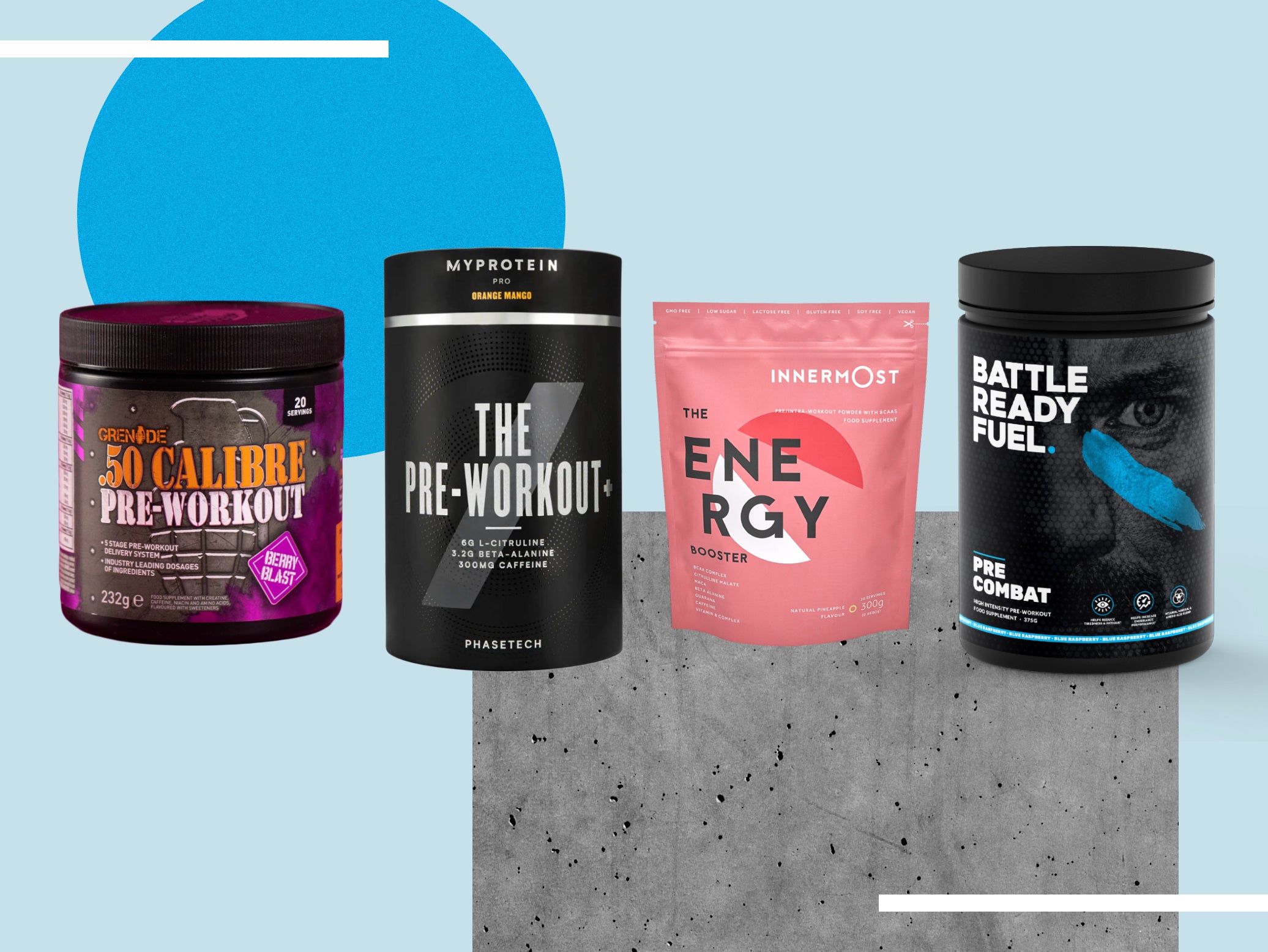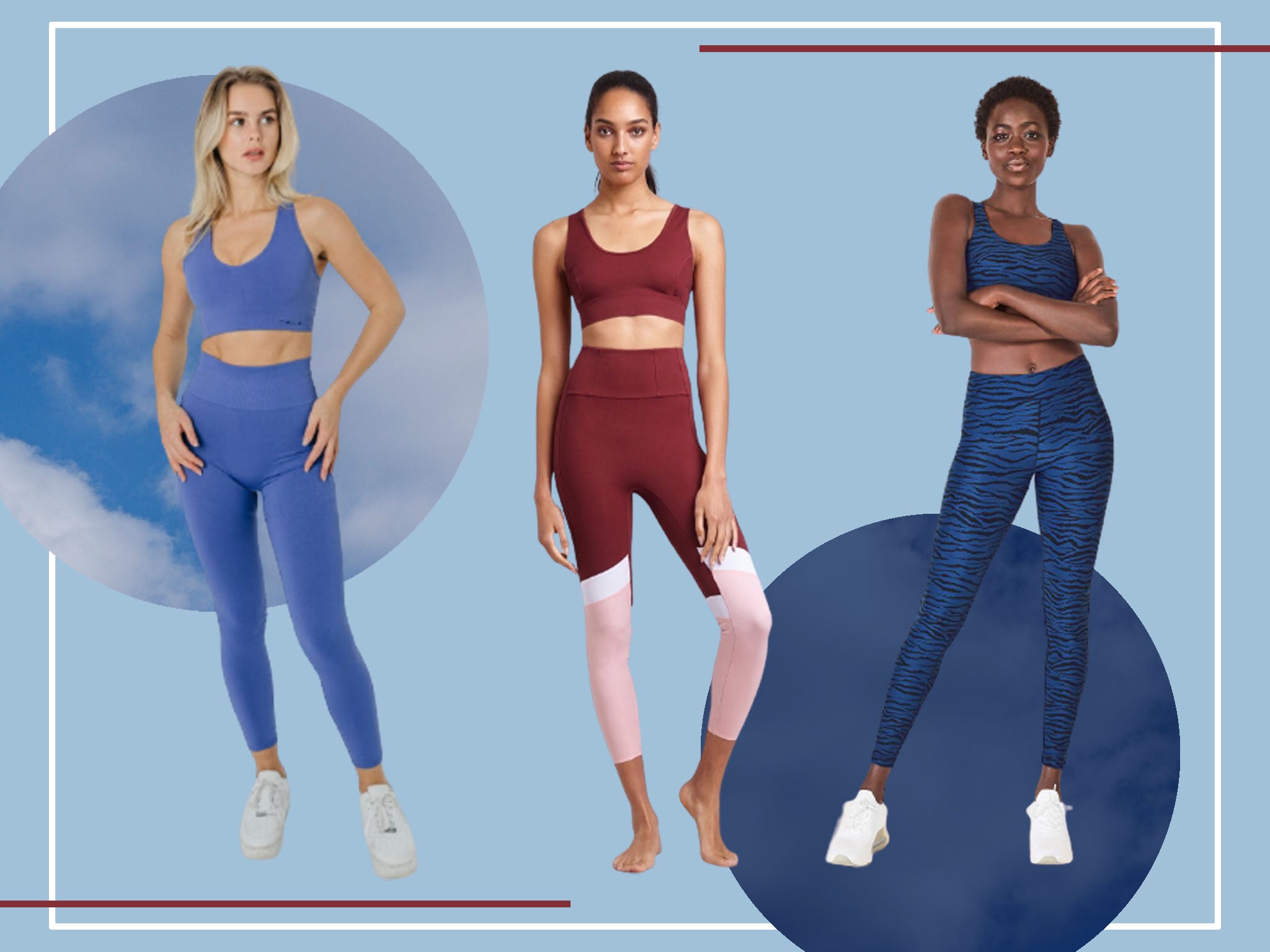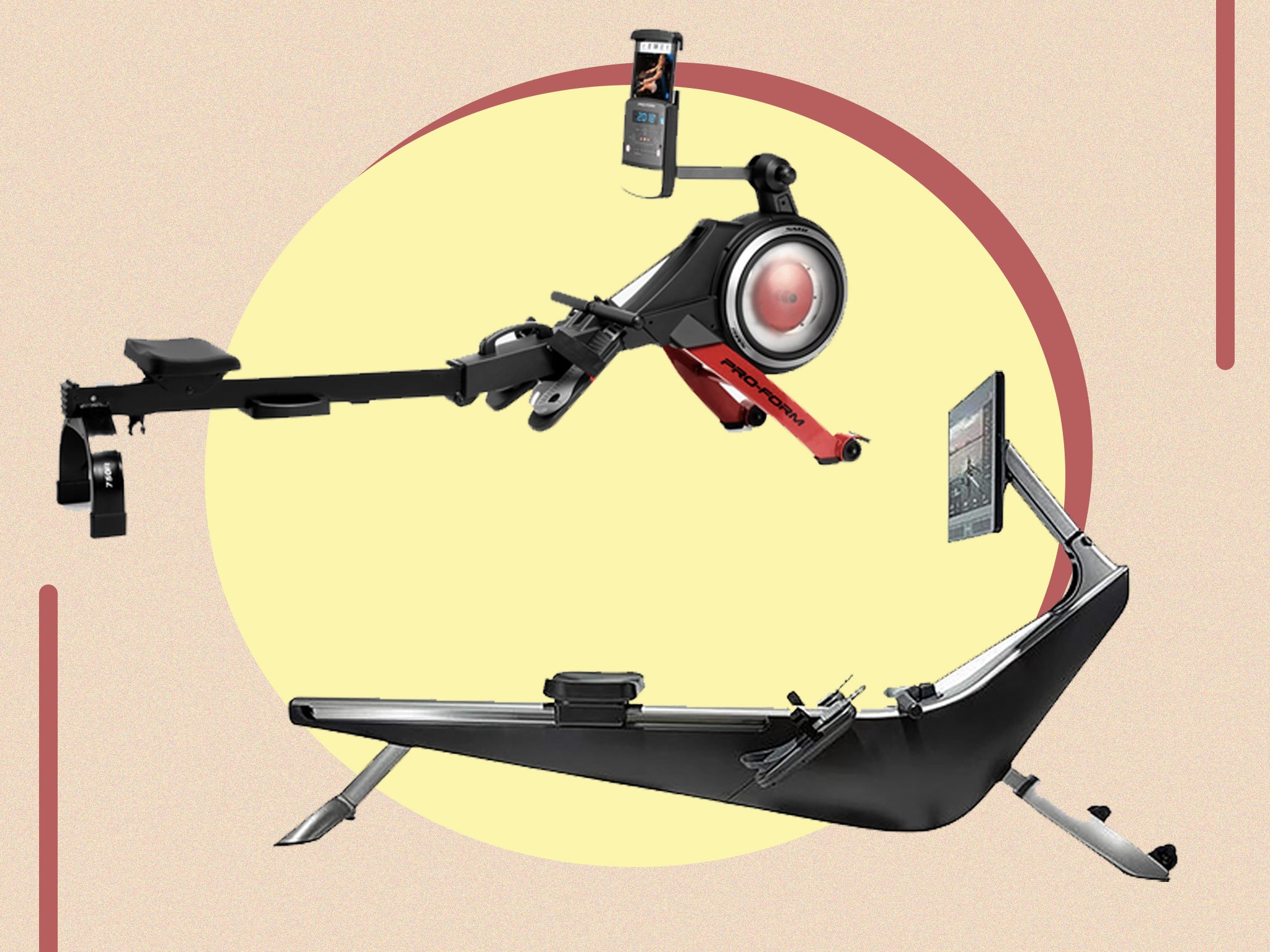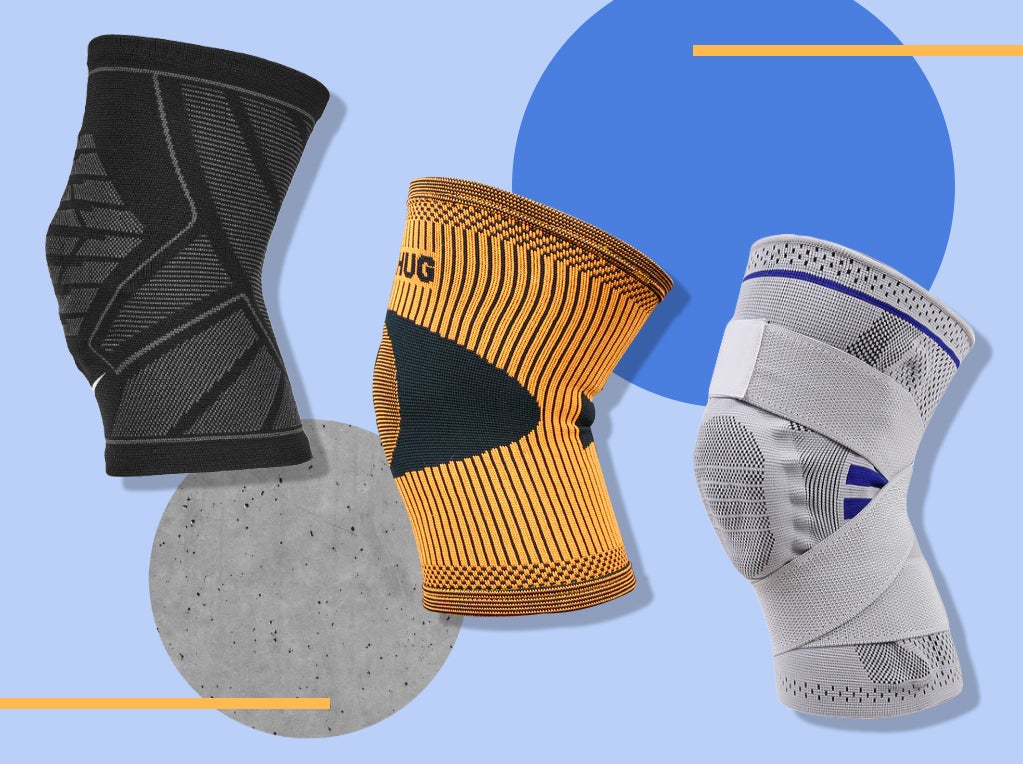The Independent's journalism is supported by our readers. When you purchase through links on our site, we may earn commission.
These are the 11 best foam rollers for soothing sore muscles, tried and tested
Whether you’re warming up or recovering from a hard workout, these foam rollers can help
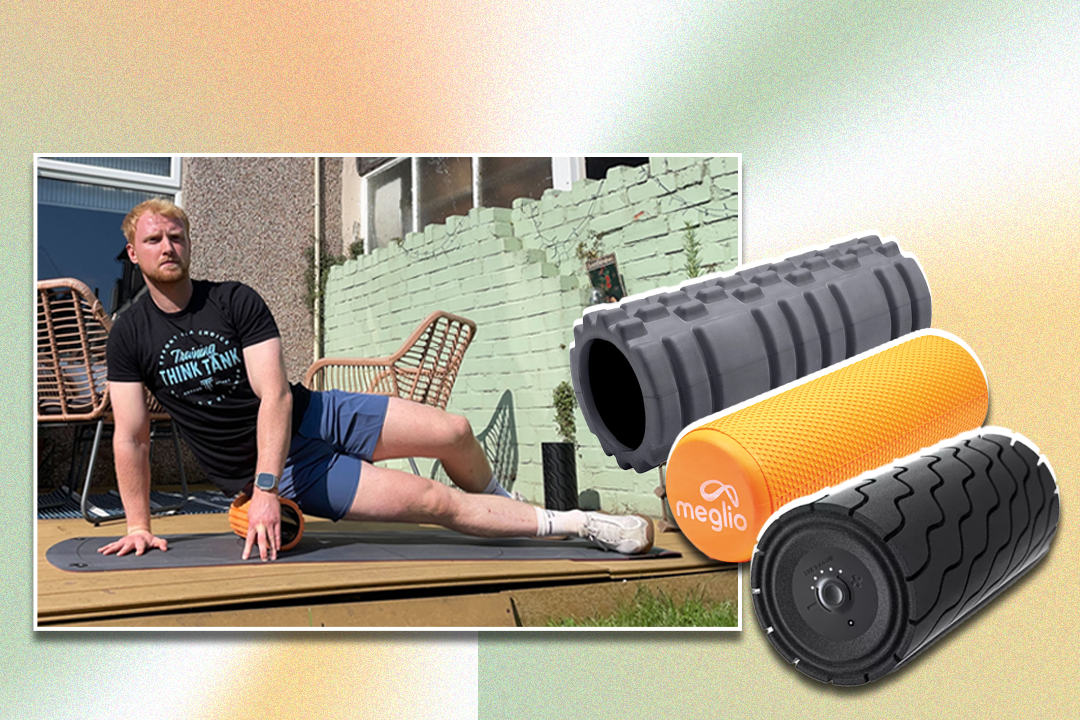
While ice baths and saunas may be the talk of social media, there’s still much to be said for simpler (and cheaper) approaches to recovery: cue the humble foam roller.
Many gym-goers swear by these self-massage tools and they’re still a mainstay for professional athletes. Pre and post-workout rolling sessions are employed to soothe tight spots in the body and ward off delayed-onset muscle soreness (DOMS for short). Some use simple pressure points to work out muscles and some come with the added benefit of vibration, helping to loosen tension in the body.
As for the science, the exact way foam rollers work is still up for debate. But a meta-analysis published in Frontiers in Physiology reported that warming up with one was “an effective strategy for short-term improvements in flexibility without decreasing muscle performance”. Foam rolling after lifting weights was also found to reduce DOMS in a (admittedly, small) study published in the Journal of Athletic Training.
Beyond this, foam rollers are fairly portable, practical and affordable. So, if you’re looking to step up your recovery game without splashing an inordinate amount of cash, a foam roller could make a great addition to your gym bag.
How we tested

The beauty of a foam roller is that it really doesn’t matter when you use it. We tried out the following foam rollers both before and after workouts as a way to warm up muscles and reduce aches. We also whipped them out after runs (anything from 5km to 15km) to prevent soreness.
We focused mainly on rolling out our quads (lying in a forearm plank position with the roller under our quads), hip flexors (in the same plank position), calves (sitting on the floor with our legs extended, foam roller under calves, and using our arms to lift our body weight up onto the roller) and hamstrings (also sitting on the floor with legs extended, this time with the foam roller under hamstrings).
The best foam rollers for 2025 are:
- Best foam roller overall – Therabody wave vibration foam roller: £125, Therabody.com
- Best non-vibrating foam roller – Trigger point the grid foam roller: £33.29, Sportsshoes.com
- Best two-in-one foam roller – Lululemon double foam roller: £48, Lululemon.co.uk
- Best for your gym bag – Hyperice vyper go: £149, Hyperice.com
- Best quiet vibrating foam roller – Compex ion: £111.99, Amazon.co.uk
1Therabody wave vibration foam roller

- Best Vibrating foam roller
- Colour Black
- Weight 1.76 kg
- Size 30 cm (L) x 13 cm (H)
- Why we love it
- Firm feel
- Five levels of vibration
- Routines to follow in the app
- Take note
- Quite oisy
- Expensive
From the same company that brought us the iconic Theragun (a massage gun that uses percussive therapy to increase blood flow to your muscles, which can help to reduce tension and break apart bad knots), the Therabody wave vibration foam roller is the best on the market for providing a deep muscle release.
It’s made with hypo-allergenic EVA high-density foam, which was comfortable on our skin and gave the product a premium feel. But it doesn’t have the usual deep grooves you would expect from a foam roller.
Instead, the Wave delivers a deep massage via five different levels of vibration, which you can flick between using buttons on the roller or remotely through the Therabody app. The app also provides a range of short follow-along rolling routines to target certain muscles, which we really enjoyed.
The battery lasts for roughly three hours, which is fairly standard for a vibrating foam roller. It’s fairly noisy on the higher vibration settings, particularly on wooden floors, and it’s not cheap, but those were our only two downsides.
2Trigger point the grid foam roller

- Best Foam roller for runners
- Colour Pink
- Weight 0.57 kg
- Size 32.5 cm (L) x 13.5 cm (H)
- Why we love it
- Varying grooves to mimic a massage therapist’s hands
- Good balance between firm and forgiving
- Robust and durable
- Take note
- No vibration setting
If you just want a no-nonsense foam roller that does its job well without fancy vibration settings (and an inevitably higher price tag), this Trigger Point option is your best bet.
It’s firm without feeling painfully hard, and scores highly for its tubular finger-like bumps and finger-tip ridges that emulate a hands-on deep tissue sports massage. This feature is especially helpful if you’re looking to loosen up tight hamstrings (looking at you, runners).
“You can really feel the difference between the two different textures, and I liked being able to line up the finger-tip ridges to target specific tight spots,” says The Independent’s fitness writer Harry Bullmore, adding: “You can’t really go wrong with this no-frills foam roller.”
3Hyperice vyper go

- Best For your gym bag
- Colour Black
- Weight 0.9kg
- Size 27cm (L) x 10cm (H)
- Why we love it
- Compact design
- Guided routines via the Hyperice app
- Contours
- Take note
- Expensive
This pint-sized roller packs some impressive power considering its modest dimensions (27cm x 10cm), making it a better option than most for chucking in your gym bag.
It has three speed settings which you can control using the button on the base, or remotely via the Hyperice app, and this latter option proved to be the more practical of the two in use.
The app also has guided foam rolling routines for specific parts of the body such as the hips, as well as routines created for certain purposes. These included a “daily warm-up”, “day off reset” and a football-focussed “match day activation”, which I liked, although I’m unsure I’d ever live it down if I rocked up to a Sunday league game with a state-of-the art foam roller in hand.
The roller itself is compact, made from a firm, lightly-textured foam (eco-friendly polypropylene, according to the brand). It has several ridges along its length, which Hyperice says help target “specialised body parts”.
I wasn’t entirely sure what this meant, but I did find the grooves were effective at holding my legs in place as I focussed on areas like my quads, hamstrings and calves. The foam dealt with any tender spots firmly yet fairly, and I liked using the various vibration settings for priming my muscles before strength training sessions.
4Lululemon double foam roller

- Best Two-in-one foam roller
- Colour Black and white marble
- Weight 0.8 kg
- Size 50.8cm (L) x 13cm (H)
- Why we love it
- Stylish
- Two rolling options
- Softer outer layer for sore muscles
- Take note
- Outer roller needs a firmer feel for deeper smassage
Featuring not one but two different textures, this foam roller from Lululemon has a sneaky second roller hidden within its outer layer. According to the brand, the exterior roller is meant to massage your arms and legs, while the firmer interior roller is designed to release tension in your back.
“I appreciated the two different densities on offer, with the softer exterior providing a more gentle post-workout massage on my sore muscles,” The Independent’s fitness writer Harry Bullmore said. “It’s surprisingly stylish too, by foam roller standards.”
It also comes in a mini size (£35, Lululemon.co.uk) which is particularly great for travelling or chucking in your gym bag as it’s only 25.4cm in length.
5Compex ion

- Best Quiet vibrating foam roller
- Colour Black and blue
- Weight 1.14 kg
- Size 31.5 cm (L) x 12.4 cm (H)
- Why we love it
- Quiet for a vibrating roller
- Premium feel
- Robust
- Take note
- Not the most powerful vibration settings
- Expensiv
This neat vibrating foam roller has a premium feel and a premium price tag, promising “industrial construction which won’t warp under heavy loads”. To test this, our overzealous writer tried standing on it, with no adverse effects (to the roller or our writer).
The textured outer provided enough grip not to slip away when we were using the roller on a yoga mat, although the fairly shallow dimples didn’t provide the same deep massage feel as the grooved non-vibrating rollers.
The four button-controlled vibration settings made up for this however, with our calf muscles in particular finishing each rolling session feeling lighter and looser than they did at the start.
It’s also impressively quiet for a vibrating foam roller, which was an issue we found with the top-scoring Therabody product. It only loses out because the highest vibration setting didn’t feel quite as powerful as the Therabody and Mypro x Pulseroll models.
6Myprotein muscle roller

- Best For targeting tight spots
- Colour Black
- Weight 0.82 kg
- Size 32.8 cm (L) x 13.5 cm (H)
- Why we love it
- Simple effective design
- Affordable
This Myprotein roller ticks many of the same boxes as the Triggerpoint option above, with two textures and a grooved exterior designed to help you really get into tight spots. Like its rival, it feels robust and well made too. But there are some subtle differences between the two products.
“The foam is slightly firmer than on the Triggerpoint model, and the smaller textured areas come to more of a point, providing a more intense massage,” says The Independent’s fitness writer Harry Bullmore.
“This is great if you want a deeper massage, just don’t expect this roller to pull any punches if you’re suffering from DOMS.
7MyPRO x Pulseroll the vibrating foam roller

- Best For powerful vibration settings
- Colour Black and blue
- Weight 1.47 kg
- Size 38.4 cm (L) x 15 cm (H)
- Why we love it
- Powerful vibration settings
- Useful finger remote
- Firm feel
- Take note
- Noisy
- Foam feels less premium
- Expensiv
This foam roller has five vibration settings, and the highest of them felt more powerful than any other product we tested. After a heavy leg day which left us struggling to climb the stairs, we used it for a thorough recovery session, and our thigh muscles in particular thanked us for it.
It also has a handy finger remote which wraps around your forefinger. There’s a single button allowing you to cycle through the five vibration settings without disrupting your rolling routine.
The higher settings are on the noisy side, the foam doesn’t feel as high-end as the Compex and Therabody models, and on the top one we did find the roller slipped slightly while rolling out our calves on a yoga mat. But putting more downward pressure on the roller solved this, and for larger muscles like the quads and hamstrings it worked brilliantly.
8Meglio 90cm high-density foam roller

- Best Large foam roller
- Colour Blue, black, purple, orange, green or red and black marble
- Weight 0.6 kg
- Size 90cm (L) x 15cm (H)
- Why we love it
- Able to hit larger areas at once
- High-density foam for a deeper massage
- Take note
- Harder to stor
This foam roller is the largest we tried, measuring 90cm – a size more commonly found in physical therapy offices and gyms. The main draw to such a long foam roller is that you can lie on it vertically – with your spine aligning the whole way along it.
The high-density material (which consists of lots of very small circular “spikes”) means you’ll feel a lot of pressure, but it’s evenly distributed throughout the roller’s surface area.
A little harder to store due to its size, the dimensions are perfect for anyone looking for targeted back massage. If that’s you, the trade-off for storage space won’t be as much of a concern.
9Meglio 45cm high-density foam roller

- Best Value for money foam roller
- Colour Blue, black, purple, orange, green or red and black marble
- Weight 0.3 kg
- Size 45cm (L) x 15cm (H)
- Why we love it
- Durable
- Provides a firm massage
- Take note
- Higher pressure pmight not suit everyone
This high-density foam roller is practically identical to the Meglio 90cm above. The only difference? It’s half the size. But don’t let that put you off – at 45cm it’s still larger than most, and great for working on smaller areas or one arm or leg at a time.
Long-lasting, durable and more portable than the longer Meglio roller, it features the same high-density material, making it ideal for applying firmer pressure. Of course, the level of firmness is usually down to personal preference and how firm of a massage you can tolerate, but at £14.99 you really can’t go too far wrong.
10Dare2b deep tissue massage roller

- Best Deep tissue foam roller
- Colour Ebony light grey
- Weight 0.84 kg
- Size 32.5 cm (L) x 13.5 cm (H)
- Why we love it
- Firm feel
- Textured outer provides a firm massage
- Portable
- Take note
- Can be painful on sore muscle
If you asked someone to draw you a foam roller, they’d probably scribble something very similar to this Dare2b option.
It stands out from the crowd by being a tad tougher than its rivals thanks to its nubby, EVA foam surface (read: if you have DOMS it can be a painful and intense massage). We particularly liked using this on our backs – but we actually found it “too much” when we put all our body weight through it to roll out our quads (perhaps that says more about our sore muscles than it does this foam roller).
Either way, for those looking for something super firm, this is a great choice.
11Pro11 Wellbeing collapsible foam roller

- Best portable foam roller
- Colour Grey and blue
- Weight 0.92 kg
- Size 13.2-33.5 cm (L) x 13.5 cm (H)
- Why we love it
- Portable
- Works well as a standard foam roller
- Take note
- Only lightly textured
- Doesn’t feel the most robus
It used to be the case that once you’d seen one foam roller, you’d effectively seen them all. The introduction of vibration settings changed that slightly, and now a new form of foam roller has sprung up on the market – a collapsible style.
This compact cylinder is just 13.2 cm long, making it a good fit for most gym bags. But by grabbing handles on either end and giving them a pull, you can elongate it into a 33.5cm roller.
By doing this, previously interlocking lightning bolt-shaped rubber pieces are spread out along an internal plastic frame. The newly formed gaps between them sparked concerns that the roller would pinch on bare skin or not be strong enough to support our weight, but we had no such problems when using it.
The lack of texture means it doesn’t feel as effective as other foam rollers on this list at seeking out trigger points, but as a compact option it won’t be beaten.
The verdict: Foam rollers
Out of all the foam rollers we tried, our favourite was the Therabody wave vibration foam roller, which offers a powerful and effective foam rolling experience. We liked that you can easily change the intensity setting on both the roller and the linked app to tailor your foam-rolling session, and the guided sessions on the app were particularly helpful when we wanted to target a certain sore spot. If, however, you’re just after a bog-standard foam roller without any fancy vibration settings, you can’t go wrong with the Trigger point the grid foam roller – it really is the ultimate do-it-yourself, no-fuss massaging tool.
Read more: Recovering from leg day has never been so simple with these muscle rubs











